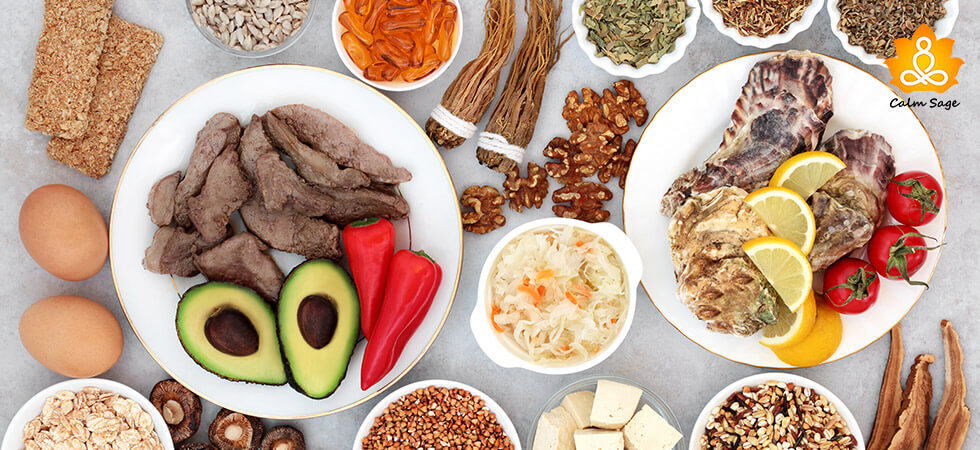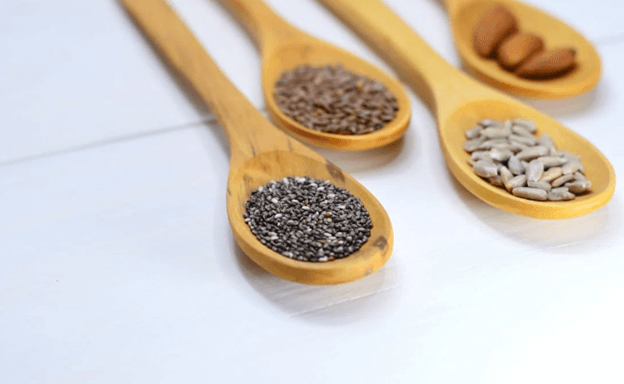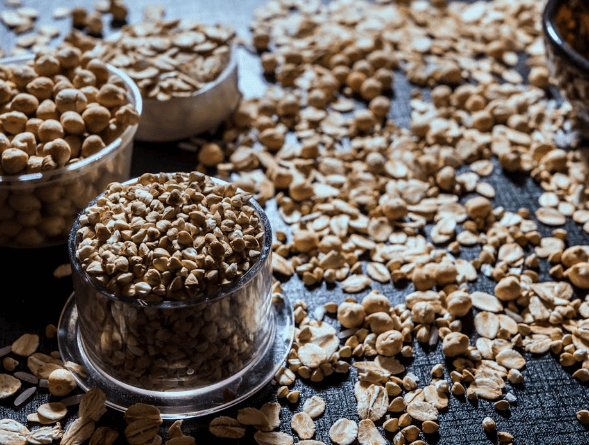The Bipolar Diet: Foods To Avoid With Bipolar Disorder (Approved By Nutritionist)

As a writer and nutritionist, I am working on crafting diet plans, managing various disorders, and blending scientific research and nutrition for overall improvement over the years. A lot of people believe that there’s no harm in eating less nutritious and unhealthy foods. Well, the matter of fact is that whatever we eat in a day is consumed by our body and it can have various impacts on our body.
For example, you might have seen people eating junk all day, hitting the gym, and still not being able to overcome obesity. Well, the science behind this is quite simple, if you eat healthy, and move your body regularly, you will be able to see the right changes. Similarly, diet plans for mental health disorders work efficiently only when you’re consistent, seeking a cure, and most importantly are ready to overcome your disorder by following a routine.
In this blog, we are going to talk about “the bipolar diet.” This blog covers the list of foods you should avoid and eat if you have bipolar disorder. So, let’s get started!
Bipolar Disorder and the Role of Food
Bipolar disorder is a mental health disorder that causes mood disturbances. Research shows that around 4..4% of the US population develops symptoms of bipolar disorder at some point. These symptoms can be effectively managed by therapy and medications. Along with therapy and medications, bipolar disorder can be effectively managed with some changes in diet.
Research shows that eating the right group of goods and avoiding some foods may help people with bipolar disorder. Maintaining healthy eating habits and weight is required for managing the symptoms of bipolar disorder. The reason is that overeating is related to bipolar disorder, and prescribed medications mess up the metabolism resulting in weight gain.
Therefore, it is important to look after healthy weight and mindful eating habits so that we can control the impact on our physical health. Being overweight or indulging in unhealthy eating habits may result in a diminished sense of self, self-esteem, and personal identity.
There’s no exact thing called a “bipolar diet.” However, people may use this for references or to promote healthy dietary choices. A bipolar diet may help you manage your weight, improve overall well-being, and overcome symptoms.
Bipolar Diet: List of Foods to Eat
1. Magnesium Rich Foods

Magnesium is a micronutrient required for healthy blood pressure regulation, blood glucose control, never functioning, and muscle functioning. Magnesium also comes with mood-stabilizing properties. Below listed are some of the magnesium-rich food sources:
- Chia seeds
- Cashews
- Peanuts
- Soymilk
- Pumpkin seeds
- Almonds
- Black beans
- Lentils
- Lima beans
- Chickpeas
2. Omega-3 Fatty Acids
Research shows that omega-3s are used as adjunctive forms for bipolar disorder treatment. Additionally, consumption of omega-3 fatty acids also helps in the prevention of Alzheimer’s disease and other mental health conditions. Food options rich in omega-3 fatty acids may include:
- Anchovies
- Chia seeds
- Eggs
- Flaxseed
- Halibut
- Herring
- Mackerel
- Salmon
- Sardines
- Tuna
- Trout
- Walnut
3.Probiotics
Probiotics come with several health benefits; such as helping in improving the gut-brain axis. Below listed are some of the probiotic food options:
- Apple cider vinegar
- Fermented milk drinks
- Kimchi
- Miso
- Yogurt
4. Selenium Rich Foods

Selenium helps in improving brain health, fertility, immune system, and other important processes. Additionally, low selenium consumption may result in an increased risk of developing depression, anxiety, and other mental health issues. Below listed are some selenium-rich food sources:
- Brazil nuts
- Brown rice
- Eggs
- Halibut
- Ham
- Sardines
- Shrimp
- Tuna
- Whole grains
5. Tryptophan Rich Foods
Tryptophan is known to be one of the most important essential amino acids that helps in regulating anxiety, sleep, mood, and others. below are some of the tryptophan-rich food options:
- Bananas
- Cheese
- Dried prunes
- Chicken
- Eggs
- Milk
- Oats
- Peanuts
- Nuts and seeds
6. Whole grains
Consumption of whole grains results in increased serotonin levels which help in regulating memory, behavior, and mood. Whole grain food options include:
- Barley
- Brown rice
- Cracked wheat
- Farro
- Red rice
- Millet
- Quinoa
- Oatmeal
7. Dark Chocolate
Chocolate is a comfort food, it can be used as a healthy snacking option. Dark chocolate may help improve thinking ability, increase energy levels, and reduce fatigue.
8. Vitamin D Rich Foods
Vitamin D-rich foods may help balance mood disturbances and help balance deficiencies in the body and brain. Vitamin D-rich food options include:
- Banana
- Cheese
- Eggs
- Fatty fish
- Milk
- Mushrooms
- Spinach
9. Vitamin C Rich Foods

Vitamin C is linked with improved cognition and mood levels. Therefore, it’s always best to add vitamin C rich foods in your meals such as:
- Black currants
- Broccoli
- Lemon
- Lychees
- Kale
- Papaya
- Peppers
- Strawberries
Bipolar Diet: List of Foods to Avoid
1. Alcohol
Alcohol acts as a depressant which negatively impacts our mood. Higher alcohol consumption triggers depressive episodes which might lead to frequent hospitalizations. Therefore, alcohol consumption must be avoided when diagnosed with bipolar disorder or any other mental health condition.
2. Caffeine
Consumption of caffeine is linked with sleep problems, exacerbation of anxiety disorders, acid reflux, and more. Higher consumption of caffeine may also result in digestive issues, restlessness, nervousness, and increased heart rate. Therefore, caffeine consumption must be avoided when diagnosed with bipolar disorder or any other mental health disorder.
3. Highly Processed or Canned Foods
Highly processed foods contain high calories, salt, sugar, and preservatives which directly impacts overall well-being. Research shows that higher consumption of highly processed or canned foods is associated with an increased risk of anxiety and depression.
4. Grapefruit
Grapefruits contain enzyme activities that inhibit the activity of certain medications. Therefore, drinking juices that contain grapefruit or consumption of grapefruit must be avoided when diagnosed with bipolar disorder.
5. Tyramine Rich Foods
Tyramine consumption inhibits the action of certain medications which may result in increased blood pressure and others. Below listed are some Tyramine food options that must be avoided:
- Aged cheeses
- Processed and canned meats
- Soybean products
- Fermented and pickled foods
- Fish sauces
- Unpasteurized or home-brewed beers
6. High Sodium Foods
If you have high blood pressure, try limiting your salt intake. Avoid adding extra salt during the preparation of meals and avoid eating foods such as:
- Meat sandwiches
- Pizza
- Poultry
- Burgers
- Savory snacks
- Pasta mixed dishes
- Soups
- Tacos
- Burritos
7. High Sugar Foods
If you’re obese and not able to maintain a healthy weight, try limiting your sugar intake, instead opt for healthier choices such as herbal teas, detox waters, or natural juices to keep you healthy and intact.
Your Personal Mini-Guide to Make Your Bipolar Diet
The idea behind the “bipolar diet” is to provide a balanced diet consisting of low saturated fats, a micronutrient-rich diet, with high protein. This diet usually involves balanced consumption of legumes, whole grains, cold-water fish, soy products, seeds, fresh fruits, vegetables, and low-fat dairy.
1. Avoid “Western diet culture”
When you engage yourself in healthy eating, the first step to take is to avoid the “Western diet” which involves higher consumption of red meat, trans fats, saturated fats, or simple carbohydrates.
2. Work on improving your gut health
Focus more on improving your gut health; support the growth of good bacteria so that you can effectively regulate your mood.
3. Add more fibre to your meals
Add more fruits, vegetables, and salad options to support a healthy brain and healthy body. Additionally, drink more water to keep the digestive process efficient.
4. Stay hydrated throughout the day
Stay hydrated throughout the day to manage a healthy weight. Avoid caffeinated beverages, instead, try natural juices, herbal teas, detox waters, and others.
5. Pack your pantry with healthy snack choices
Remove food products that contain caffeine, alcohol, grapefruit, or Tyramine. Instead, pack your pantry with healthy choices such as fermented milk products, yogurt, kimchi, sauerkraut, and more.
6. Learn more about mindful eating.
Prepare your meals mindfully, add balanced nutrients, control your portions, and eat mindfully to avoid overeating and gaining extra inches.
7. Control your portions
It’s important to control your portions to manage a healthy weight and symptoms. Add micro-nutrient-rich foods so that you can consume the right amount of essential nutrients. Eat slowly, control your portions, and add nutrient-rich foods.
8. Track your emotions
Symptoms of bipolar disorder involve overeating or binge eating. Therefore, always track your emotions and avoid overeating when struggling with symptoms. Instead, choose healthier snacking alternatives.
9. Exercise regularly
Exercising regularly is also important when you want to maintain a healthy weight and keep your mind fresh.
10. Follow the rainbow diet pattern
While choosing your food options, consider the basics of the rainbow diet and make your meals colorful and flavorful.
I hope this blog helps you with the list of foods to eat and avoid in bipolar disorder. Comment down and share your picks from the list or you can share the list of local foods that might help in curing bipolar disorder.
For more such content, connect with us through all social media platforms.
Thanks for reading!




















